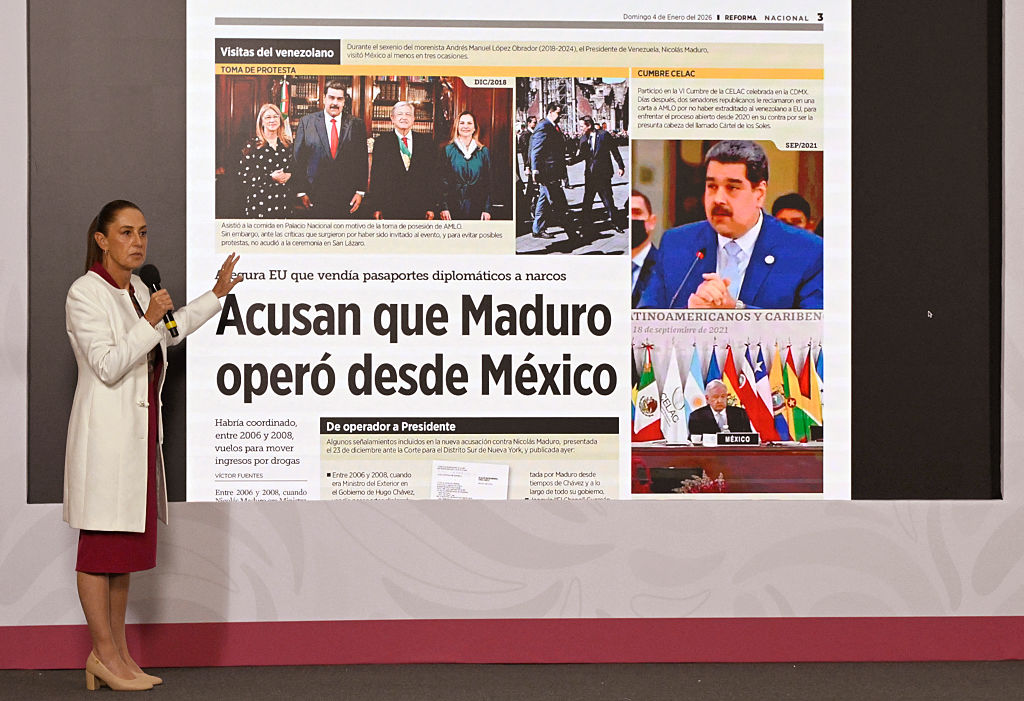The Death of the Washington Consensus
The Death of the Washington Consensus
What’s good for Mexico—a new, coherent growth strategy—might be good for Latin America. The real news, though, is that, in a world where the United States has abdicated its leading economic policy role, at least some Latin leaders are again beginning to think about defining their own future course.
The recent political firestorm over the proposed sale of five US ports to a Dubai company, which was already one of the world’s largest and most successful operator of port facilities, marked the final death of the “Washington Consensus.” The angry, bipartisan political reaction was justified in the name of national security: “In a post 9/11 world, how could Arabs be allowed to control such vital U.S. economic infrastructure as ports?”
In fact, the overheated political rhetoric quickly spread from ports and Arabs to any foreign investment in any facility deemed by a government committee to be of national security importance. As one leading Republican congressman declared, "We want to make sure that the security of our ports is in America's hands," ignoring the fact that most ports—including the five whose sale set off the debate—have been owned for years by non-American companies. And other politicians quickly proposed laws or regulations to review foreign investments in the United States in anything that might be termed “strategic”—from electricity to water to airports and beyond.
Only the increasingly lonely and unpopular voice of President Bush defended the underlying economic principle that restrictions on capital flows are restrictions on growth—and his voice was almost completely ignored.
Of course, none of this should be too surprising in world where the French defend a yoghurt company from foreign take over on the grounds that France’s national interest requires it remain French, or where the Spanish, Italians, and French are busily erecting barriers to each others’ attempts to acquire their national electricity and gas companies.
This rampant economic nationalism is the final blow to the model that the United States and other industrial countries had championed as the solution to the dreadful economic performance of the developing world after the lost decade of the eighties. That model combined fiscal and monetary discipline with privatization of government owned assets, openness to foreign investment, and commitment to free trade. Markets, not politicians, were supposed to set prices. The politicians were supposed to worry about reducing the size of government, so that the energy of private capital and entrepreneurs could become the engine of growth.
With outsize fiscal deficits in the United States, as well as in France and Germany, growing protectionism, massive foreign debt accumulation by the United States, and new restrictions on foreign investment being established almost daily throughout the industrial world, it is impossible to pretend that there is any “consensus” left over what economic model promises the most growth and the least inflation.
Curiously, in a year when most Latin countries are conducting national elections, there has been little real debate about how to maximize economic growth. Most candidates are too caught up in the process of getting elected to enter into a serious conversation about alternative development strategies, and most voters are too cynical to expect their potential leaders to actually address serious policy issues during political campaigns.
A surprising and welcome exception recently occurred in Mexico City, where the Chamber of Deputies convened a seminar on competitiveness. Although most participants were local politicians, businessmen, and academics, Joseph Stiglitz, formerly of the World Bank, presented his own version of a post-Washington consensus growth strategy. Essentially, he argued that the keys to rapid growth in Latin America are strong enforcement of anti-trust laws, regulation of monopolies, increased (and increasingly progressive) taxation, greater investment in education and health, increased availability and access to credit, and focused industrial and export promotion policies. While most endorsed these ideas, other speakers also proposed dramatic increases in infrastructure spending, investments in high value added petroleum projects, increased welfare payments, and effective liberalization of Mexico’s telecommunications market where the same operator still controls more than 90% of the fixed and 85% of the wireless lines, years after privatization.
Amidst the laundry list of proposals, three important themes stood out. First, there was growing recognition that local competition is critical to global competitiveness, especially in telecommunications, but in other areas as well. Second, there was an increasing demand to have the central government take the lead in defining pro-growth social and industrial policies. This is a significant departure from the Washington consensus vision in which the private sector was supposed to be the prime growth engine. Third, there was a presumption that Mexico could afford shift to a new economic strategy since the twin evils of excessive debt and hyper-inflation seem to have been permanently defeated.
What’s good for Mexico—a new, coherent growth strategy—might be good for Latin America. The real news, though, is that, in a world where the United States has abdicated its leading economic policy role, at least some Latin leaders are again beginning to think about defining their own future course.








